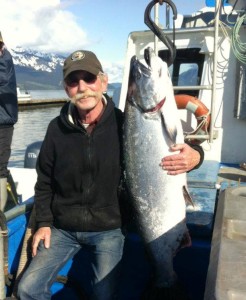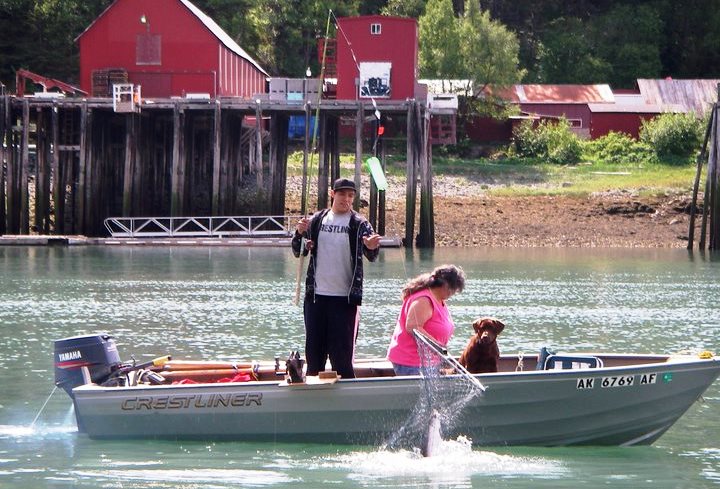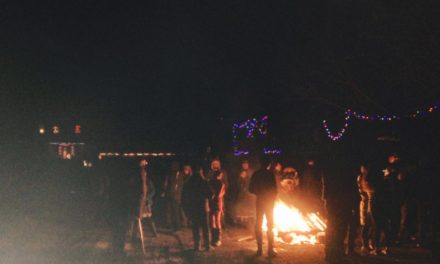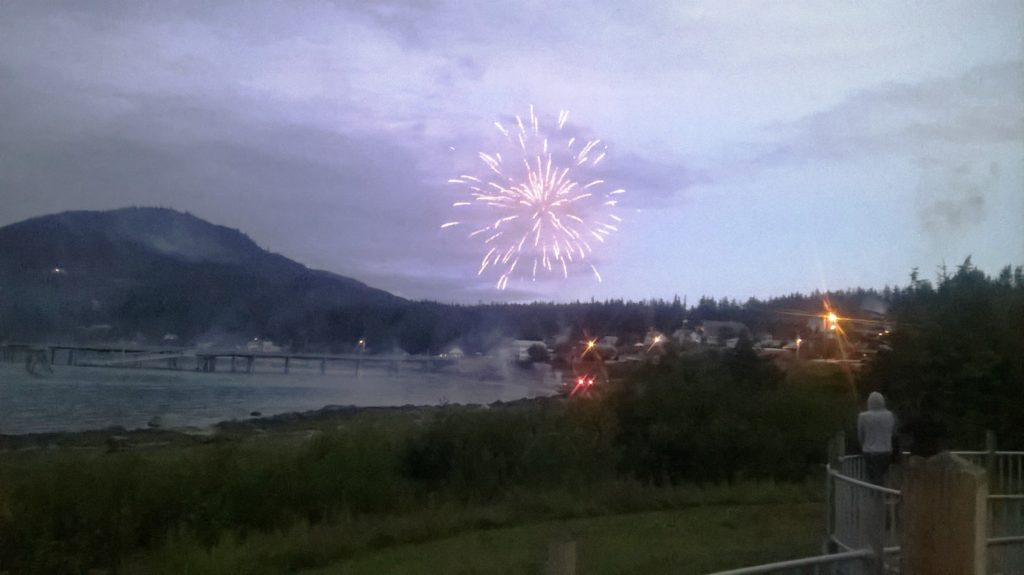Another tough year is predicted for king salmon in Southeast and that has prompted the cancellation of the annual Haines King Salmon Derby.

Mark Edwards, past winner of the Haines King Salmon Derby. (Photo: The Haines Sportsman’s Assoc.)
Alaska Department of Fish and Game biologist Rich Chapell says according to the forecast, if normal fishing continued this season in the Haines area, the number of Chilkat kings that make it up the river to the spawning grounds would fall below the escapement goal. That poor forecast triggers the low abundance management plan that calls for closing the popular Chilkat Inlet to sport fishing through the end of June.
With that restriction in place, the Haines Sportsman’s Association voted recently to cancel the King Salmon Derby this year. Most of the fish landed in the derby are caught in the inlet, says organizer Toni DeWitt. While other areas will remain open, she says the association decided it would be difficult to make the derby worth the effort and cost this year.
“We don’t have a lot of confidence we can hold the derby on the town side because the majority of the fish, probably 90 percent, are caught on the cannery side,” DeWitt says.
The derby has been canceled before; in 2008 to help conserve the king run and for several years in the 1990s.
This would have been the 37th derby that normally runs over two weekends in late May and early June. Last year the event offered $21,000 in donated cash and prizes for the top fish in several categories. Visitors from Whitehorse frequent Haines for sport fishing.
The Chilkat king run has missed escapement goal in the last three years. Last year was the second lowest escapement since in-river tagging studies began in 1991. But Chapell says the additional conservation measures this year will hopefully support a healthy run.
“We believe that taking this conservation action and closing Chilkat Inlet to the main fishery which is may and June of each year, we believe that will help achieve the escapement we need to keep this run going,” Chapell says.
The low forecast for this season means commercial and subsistence fisheries will also be affected. Biologist Randy Bachman says the he will close the inlet to those gear groups as well.
“So what we’re going to do in the subsistence fishery is move that line just a bit further south to the latitude of Koshu Island and that will provide more of a milling zone for king salmon in face of a smaller run and also send a message to everybody that we’re concerned about king salmon,” Bachman says. “We’ve always asked people that if they catch one to release it anyway.”
As for the derby, DeWitt says it’s disappointing because it many businesses and people donate time and money to the event that draws residents and visitors. But conservation is one of the mandates of the Sportsman’s Association so DeWitt said the group understands the closure.
“It’s sad. It’s a big part of our family’s life and a lot of other people enjoy it too.”
Chilkat king aren’t the only Chinook runs suffering in Southeast or the state. The state also recently announced parts of the Kenai River will be closed to king fishing this year.









